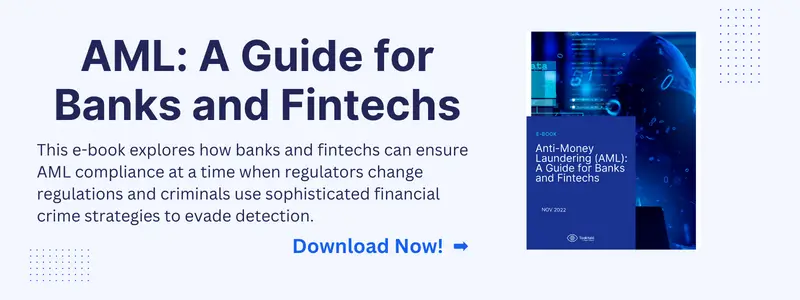Money laundering is a term frequently thrown around in financial and crime movies, often associated with shady transactions and criminal enterprises. It is a serious criminal offence that involves disguising the origins of illegally obtained funds and making them appear legitimate. It is a global problem that has far-reaching economic and social consequences. But what is money laundering exactly, and why is it considered illegal in most jurisdictions?
In this article, we will explore why money laundering is illegal, its impact on financial systems, and the efforts made to combat this illicit activity.
Is Money Laundering Illegal?
Money laundering is unequivocally illegal in nearly every nation across the globe. At its core, it represents the process by which individuals or entities disguise the origin of money obtained from illicit activities, making these sums appear as though they came from legitimate sources. Criminals engage in money laundering to conceal the origins of their ill-gotten gains and integrate them into the legitimate financial system. By doing so, they aim to avoid suspicion and detection by law enforcement agencies.
The illegal nature of money laundering stems from the fact that it enables criminals to benefit from their illicit activities and use the proceeds for personal gain or to fund further criminal enterprises. It allows them to enjoy the fruits of their illegal activities without facing legal consequences.
Governments worldwide have criminalized this act, not just because it conceals illegitimate money, but because of the wide range of negative consequences it presents for economies, societies, and financial institutions.
Economic and Social Consequences of Money Laundering
Money laundering has significant economic and social consequences that extend beyond the immediate impact on individuals involved in criminal activities. These consequences affect both developed and developing countries.
-
Undermining Economic Stability
When money launderers introduce their ill-gotten gains into the legitimate economy, it can cause inflation. Sudden influxes of money can create unrealistic valuations of assets, leading to financial bubbles. When these bubbles burst, as they often do, they can cause economic crashes and downturns.
One of the major economic consequences of money laundering is the distortion of economic indicators. When illicit funds are integrated into the legitimate economy, they can artificially inflate economic growth, investment levels, and financial sector activity. This can lead to misallocation of resources and create an unfair competitive advantage for those involved in illegal activities.
-
Tax Evasion and Revenue Loss
Money laundering often goes hand-in-hand with tax evasion. By making illicit funds appear legitimate, individuals can avoid paying taxes on their income, leading to significant revenue losses for governments and increased financial burdens on law-abiding taxpayers. -
Promotion of Criminal Activities
When criminals can effectively launder their money, it incentivizes them to continue their illegal pursuits. Whether it's drug trafficking, human smuggling, or fraud, the ability to enjoy the proceeds without fear of detection only encourages further criminal activity.
Why is money laundering unethical? From a social perspective, money laundering enables the financing of organized crime, drug trafficking, terrorism, and other illicit activities. These activities pose significant threats to public safety and security, as well as the stability of communities and nations.
Impact of Money Laundering on Financial Systems
Money laundering poses a direct threat to the stability and integrity of financial systems. By infiltrating the legitimate financial sector, illicit funds can contaminate the system and undermine its effectiveness.
- Loss of Credibility: Financial institutions that are embroiled in money laundering scandals can face significant reputational damages. Customers may lose faith and choose to take their business elsewhere, leading to financial losses and decreased trust in the banking system as a whole.
- Systemic Risks: Money laundering also exposes financial systems to systemic risks. Illicit funds can flow through multiple institutions, making it difficult to trace and control their movement. This can create vulnerabilities in the system, allowing criminals to exploit loopholes and weaknesses for their own gain.
- Regulatory Fines and Sanctions: Banks and other financial entities that do not maintain stringent anti-money laundering (AML) protocols can face hefty fines. In extreme cases, they might even face operational restrictions or shutdowns.
- Distorted Financial Metrics: When laundered money flows freely within the banking system, it can distort financial metrics, making it difficult for institutions to assess their performance accurately and for investors to make informed decisions.
Efforts to Combat Money Laundering
Recognizing the serious threat posed by money laundering, governments and international organizations have taken significant steps to combat this illicit activity. Various laws, regulations, and international frameworks have been put in place to detect, prevent, and deter money laundering. As such, concerted efforts have been put in place to combat this menace. These include:
- Strict Regulatory Frameworks: Most countries have established stringent AML laws and regulations that compel financial institutions to monitor transactions actively, report suspicious activities, and conduct due diligence on their customers. For example, the United States has the Bank Secrecy Act (BSA), which requires financial institutions to report suspicious transactions and maintain records of large cash transactions. The USA PATRIOT Act strengthened the BSA framework by enhancing customer identification processes and imposing stricter requirements on financial institutions.
- International Cooperation: Money laundering is a global problem, necessitating international solutions. Organizations like the Financial Action Task Force (FATF) work towards setting international standards and promoting effective implementation of measures to combat money laundering. Established in 1989, the FATF sets global standards for anti-money laundering (AML) and counter-terrorism financing (CTF) measures. Its recommendations provide guidance to countries on implementing effective AML/CFT frameworks.
- Public Awareness: Many nations have taken steps to raise public awareness about the signs of money laundering and the channels to report suspicious activities. By involving the public, authorities can tap into a vast resource to detect and combat this crime.
Financial institutions themselves play a crucial role in combating money laundering. They are required to implement robust AML/CFT programs, conduct customer due diligence, monitor transactions for suspicious activity, and report any suspicious transactions to the appropriate authorities.
Technology has also become a valuable tool in the fight against money laundering. Advanced analytics, artificial intelligence, and machine learning algorithms are being utilized to identify patterns, detect anomalies, and flag potentially suspicious transactions.
Final Thoughts
Money laundering is illegal because it enables criminals to profit from their illegal activities while avoiding detection and prosecution. It has severe economic and social consequences, distorting economic indicators, undermining financial systems, and facilitating organized crime. However, concerted efforts by governments, international organizations, and financial institutions are being made to combat money laundering and protect the integrity of the global financial system.
By implementing robust AML/CFT measures, leveraging technology such as those offered by Tookitaki, and promoting international cooperation, we can continue to make significant progress in the fight against money laundering.
Anti-Financial Crime Compliance with Tookitaki?




